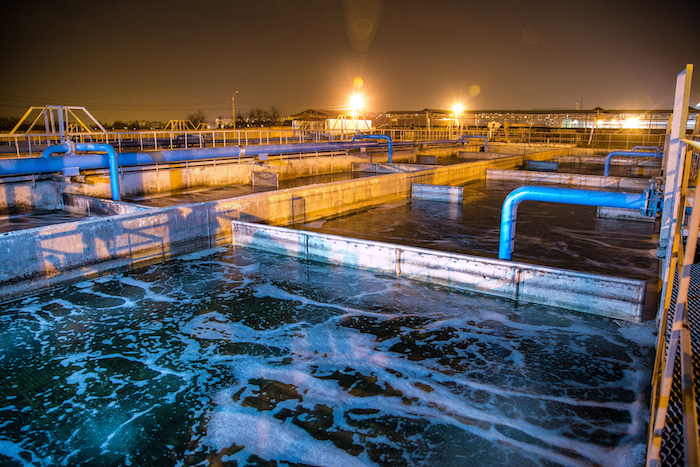
Wastewater treatment is an essential aspect of industry operations, especially in aiming to protect the health of various ecosystems. Properly treated wastewater can be a reliable water source for many purposes. Good wastewater treatment maximizes the reusing of water for sustainability and nature preservation.
Here are the benefits of treating your wastewater:
1) Prevent Waterborne Pollution
Waste water treatment systems are specifically designed to prevent waterborne pollution. Insufficient treatment causes fecal sludge and other forms of water pollution that can spread disease and drive antimicrobial resistance.
Here are the wastewater treatment solutions to prevent waterborne pollution:
- Water Clarification: Clarification is a vital step in a wastewater treatment process. It involves removing suspended solids via gravity settling, which provides a clear liquid effluent. The secondary function of water clarification is to remove scum or floating matter that accumulated on the water surface.
- Heavy Metals Removal: The different treatment technologies in removing heavy metals in wastewater include electrodialysis, chemical precipitation, chemical oxidation, ion exchange, reduction, ultrafiltration, reverse osmosis, and adsorption. Adsorption is considered the most efficient because other techniques have limitations like low efficiency, generating a large amount of sludge, costly disposal, and sensitive operating conditions.
- Silt Management: Sand and grit removal equipment is used in silt removal, quickly recycling wash water and reusing this valuable commodity for irrigation or additional washing.
- Dust Suppression: In dust suppression, oil and gas wastewater can be used after being treated in a wastewater treatment facility (learn further below).
- Truck Wheel Wash Systems: Wheel wash wastewater is discharged in a separate treatment system to prevent discharging it to receiving water. Using a truck wheel wash system is one way of conserving water, in which water can be used to wash dirt from truck wheels that leave the construction site.
2) Safeguard Public Health and Safety
Metal contaminants, like lead, stay on the road surface and aren’t washed off by rainwater. Conventional wastewater treatment removes some of the contaminants. However, it can’t lower or remove the salt concentration. So, dust suppression is an important step in wastewater treatment.
Oil and gas wastewaters are usually permitted to spread on roads for dust suppression or deicing purposes. Wastewater treatment has high salt content, including calcium, sodium, strontium, and magnesium, which is ideal for deicing and dust suppression.
However, oil and gas wastewaters have high organic, salt, and radioactivity concentrations. This wastewater can spread on roads, possibly causing biological toxicity, including humans. And when oil and gas wastewater accumulate in the road, it can also migrate into water resources.
For this reason, oil and gas wastewater should be treated before it’s used on dirt roads to deice roads or suppress dust to safeguard public health and workers’ safety.
3) Improve Efficiency
Improve the efficiency of your industrial manufacturing process with wastewater treatment, particularly employing liquid-solids separation technology. Such systems remove the smallest to the largest items, like inorganic particles and garbage, from stormwater runoff and wastewater. Having a liquid-solids separation system set in place, you can make your manufacturing operation more efficient and decreasing your operating costs.
4) Increase By-product Recovery
In general, any industrial process using a lot of water has a significant amount of by-product washed and wasted into wastewater streams. Having a wastewater treatment system set in place can help you find treasure, such as scraps from ingredients, fines left from steel, and other residual materials that would otherwise be put to waste.
5) Avoid Industrial Equipment Damage
If residual wastes are left to enter other equipment and processes, they can pose detrimental damage and reduce liquid-based wastewater treatment processing capacity. When residual wastes are sent to a sewer system, you’ll likely incur significant discharge fees.
6) Minimize Waste
Reduce waste from your facility by implementing an industrial wastewater treatment system. It helps you save money and ensures chemically-treated water is cleansed and removed in a safe, environmentally friendly manner.
7) Clean And Safe Processed Water
Wastewater can be reused, and reusable water help save money and save the earth. Toxins in wastewater are removed during the process to produce clean and safe water.
Water is a renewable resource. But it takes a long time for rain and evaporation to eliminate toxins. So, wastewater treatment is a practical solution to make the process faster, providing safe and crystal-clear reusable water.
Conclusion
Wastewater treatment is highly beneficial in manufacturing companies and other industrial businesses. Aside from preserving water and avoiding water pollution, wastewater treatment boost productivity avoids equipment damage and promotes efficient operations.
One crucial factor to remember is that it’s vital to ensure you have a high-quality wastewater system in place. Choose a reliable company to install your effluent treatment plant for smoother manufacturing operations.
